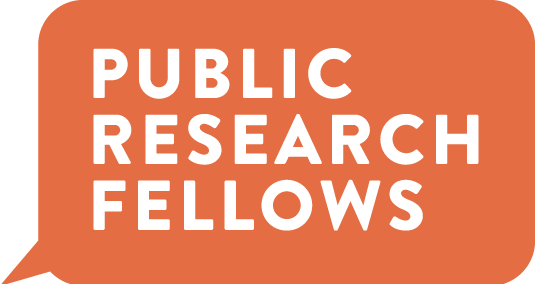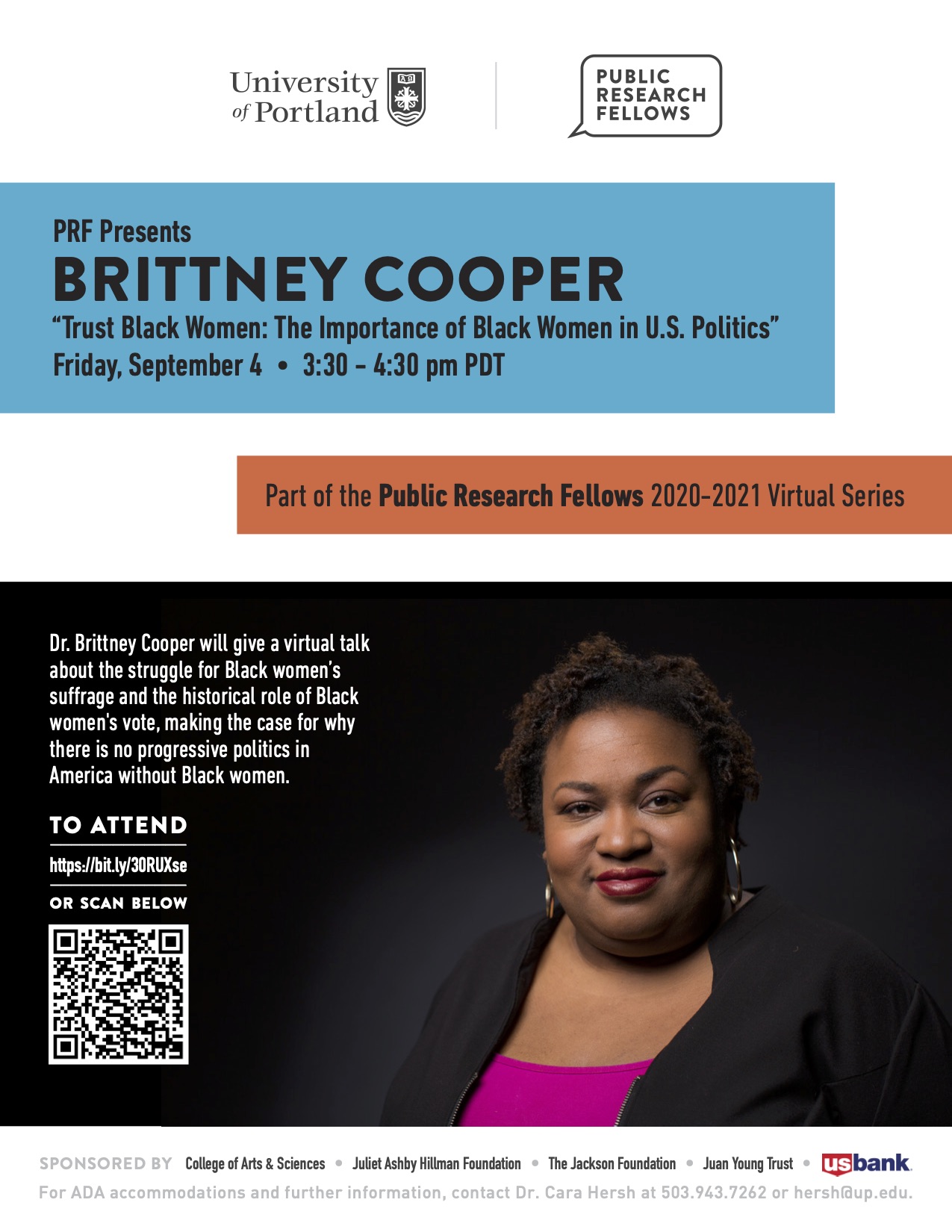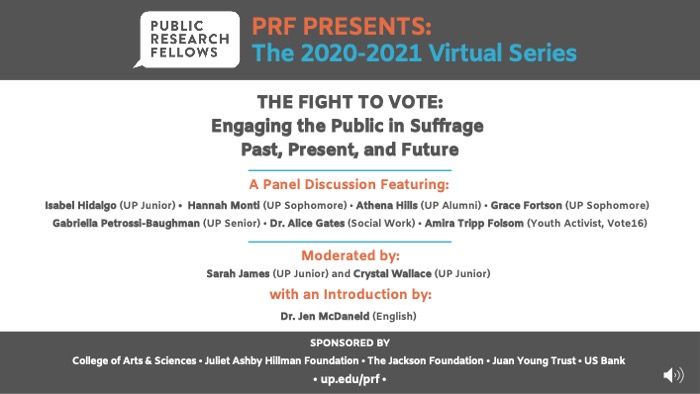PRF Wraps Up First Year with Fall 2020 Virtual Series
Last year, the Humanities Collaborative of the College of Arts & Sciences launched the Public Research Fellows, a new program that uses humanities concepts and methods to bring people together from across the university and beyond campus to explore a common topic rooted in principles of human dignity, the common good, and social justice.
Across 2019-20, six teams of faculty and undergraduates worked together to explore issues related to gender, suffrage movements, and voting rights. Their topics demonstrated an impressive variety, ranging from visual representations of suffrage in Germany during the early-twentieth century, to the global history of non-citizen voting rights, to local proposals to lower the voting age to 16. Instead of writing a traditional scholarly article or presenting at an academic conference as a culmination of this work, their projects resulted in very different kinds of outcomes:
an online quiz tool to help the public understand political candidates’ views on immigration and voting; a podcast featuring Portland youth activists building voting rights campaigns; a library exhibit on the little known suffrage work of Louisa May Alcott. Students faculty, and community activists recently presented much of this work at a well-attended virtual roundtable titled
“The Fight to Vote: Engaging the Public In Suffrage Past, Present, and Future.” This semester the program also hosted a virtual event with Dr. Brittney Cooper, historian at Rutgers University, who gave a riveting talk titled
“Trust Black Women: The Importance of Black Women in U.S. Politics.” More than 300 people from across campus and across the country tuned in to hear Cooper’s take on the history of black women’s struggle for voting rights and its relationship to the contemporary era. Her talk blended scholarly analysis with pop culture references and historical inquiry with present-day politics; it was a prime example of the impact that public scholarship can make. The event enacted one of the goals of PRF: to widen the scope of academic work so that it can bring people together around timely issues.



